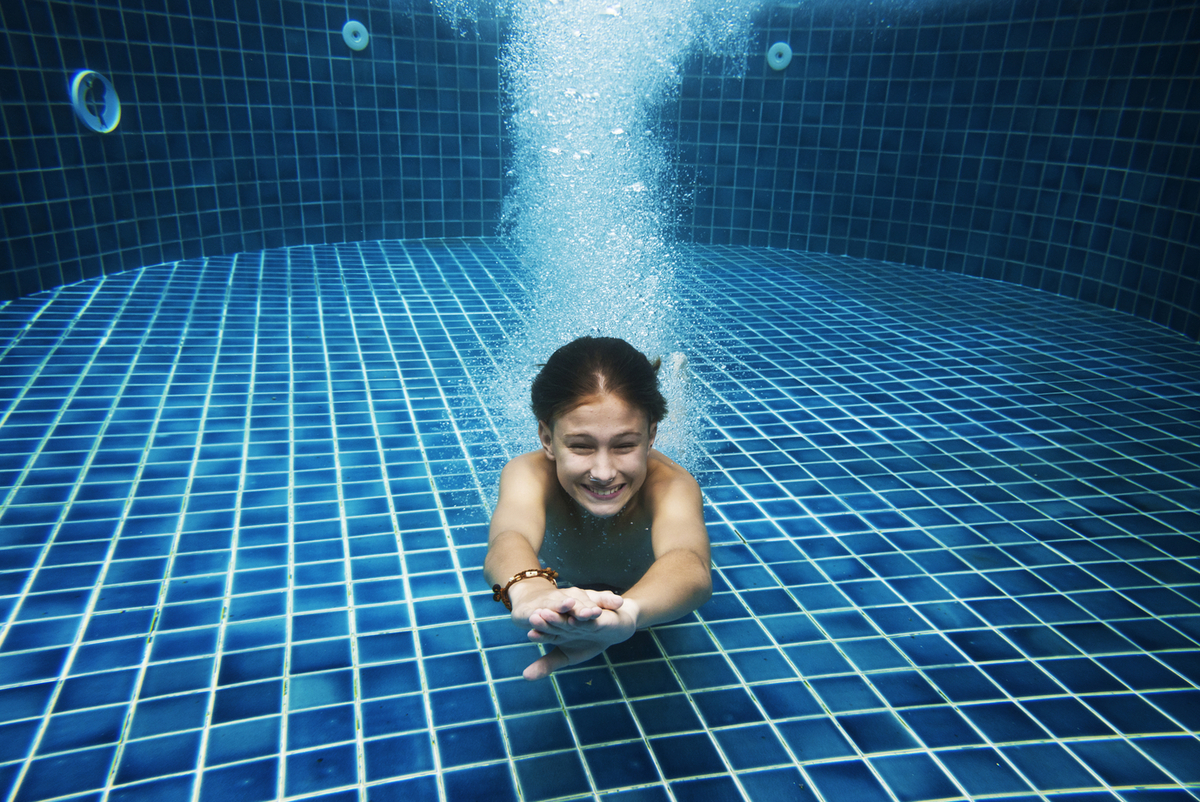Sure, you'll find "swimming" on any list of exercises recommended to boost your physical strength and stamina, right alongside walking, running, cycling, or aerobics classes — but is swimming really just another cardio workout choice, or is there more to this sport? Does swimming offer a sense of freedom, as well as better health?

The physical health benefits of swimming (and other water-based exercise)
Swimming will do many of the very same things other cardio exercises — the type of workout that gets your heart pumping faster and forces your body to use more oxygen — achieve. It gets your heart rate up and burns calories. If you swim regularly, your muscles will get stronger, and your stamina will increase. As with any kind of regular exercise, swimming reduces your odds of cardiovascular disease and obesity.
Swimming will boost your strength, fitness, and overall health.
It also has some health benefits that land-based workouts don't, though:
- Swimming may reduce your odds of dying prematurely for cardiovascular reasons more than other sports.
- Swimming makes you use nearly all of your muscles, but your workout won't feel nearly as tiring as a land-based exercise, because you're fighting gravity less.
- This means people can get a longer workout in when they swim, without feeling tired or feeling a strain on the muscles or joints. This is especially good for people with arthritis (for whom swimming improves function without adding nasty new symptoms, as other kinds of exercise might), those recovering from injuries, obese people, and pregnant women. It has to be said that swimming is an excellent workout choice for older adults, as well.
- Swimming has been found to be particularly good for the bone health of women who have gone through the menopause, which is important as they have a higher risk of osteoporosis.
- Swimming is easier on people suffering from chronic pain conditions, such as fibromyalgia or rheumatism.
- Swimming in winter, when many people feel sluggish and fatigued, has a curiously positive impact on energy levels.
Research further found that swimming was an excellent part of pulmonary rehabilitation programs designed for people suffering from chronic obstructive pulmonary disease. These patients often suffer from severe shortness of breath on a chronic basis, and have not exercised in a long time because of this. Swimming may be easier to tolerate than traditional land-based workout programs that incorporate land-based cardio exercises like using treadmills or stationary bikes, not just physically but emotionally as well.
The fact that COPD patients benefit from swimming or water-based exercises so much could be interesting for the teams of people currently developing COVID-19 rehabilitation programs, as well.
Beyond your physical health: What swimming can mean for your mental health and stress levels
All kinds of regular physical exercise have the potential to improve your mood and wellbeing, and to reduce stress. There is some research to suggest that swimming and other aquatic exercises do more to boost your mental health than other, land-based, exercises, however.
Why?
Many factors could explain this — from the fact that people experience swimming as a fun activity rather than a chore they do just because they want to stay healthy, and the fact that whole generations can enjoy swimming together, to the fact that swimming reduces weight-bearing strain and therefore makes physical limitations much less noticeable. People with physical disabilities, especially, can feel liberated by swimming.
Spending time in warm water feels comforting and relaxing, while swimming in natural bodies of water helps connect us to the planet we all depend on — and being outdoors offers mental health benefits all on its own.
For those of us who are solitary swimmers, it's perhaps surprising that studies have found that swimming regularly can also present an excellent opportunity to socialize and meet new people, both of which would have a huge impact on wellbeing.
COVID-19: Is it still safe to go swimming?
Despite the fact that there's no evidence that COVID-19 can directly be spread through (also heavily chlorinated) water in public swimming pools, swimming pools are still places where people congregate. That makes them a risk. This is why it's so important that proper safety protocols are followed in these spaces.
That means social distancing, washing your hands regularly and properly, and wearing face masks — when you are not in the water, of course. Your swimming pool will probably have rules about how many people can visit at any one time, and will advise swimmers who don't share a household to keep their distance even while in the water. If you have any symptoms of COVID-19, you should not go to the pool.
On the pool management's side of things, disinfecting all surfaces (such as changing rooms, lockers, and restrooms) often and making sure proper ventilation is in place is important.
Similar rules should apply to people who want to go swimming outside, in natural bodies of water like oceans, seas, and lakes. Even if there's nobody to tell you off for taking your mask off and forgetting about the hand sanitizer, the risk of COVID-19 is real any time many people come together in one space (though less so outdoors, it's not non-existent even in the open air).
If you're lucky enough to have a private (or "private") place to go swimming, whether a pool or a deserted lake near your home, enjoy it to the fullest! Otherwise, consider swimming for its many physical and mental health benefits, but keep infection prevention in mind at all times.
- pubmed.ncbi.nlm.nih.gov/17667023/
- www.tandfonline.com/doi/abs/10.3402/ijch.v63i2.17700
- pubmed.ncbi.nlm.nih.gov/10503183/
- www.ncbi.nlm.nih.gov/pmc/articles/PMC4625655/
- www.cdc.gov/coronavirus/2019-ncov/community/parks-rec/aquatic-venues.html
- www.swimming.org/swimengland/health-and-wellbeing-benefits-of-swimming/


Your thoughts on this